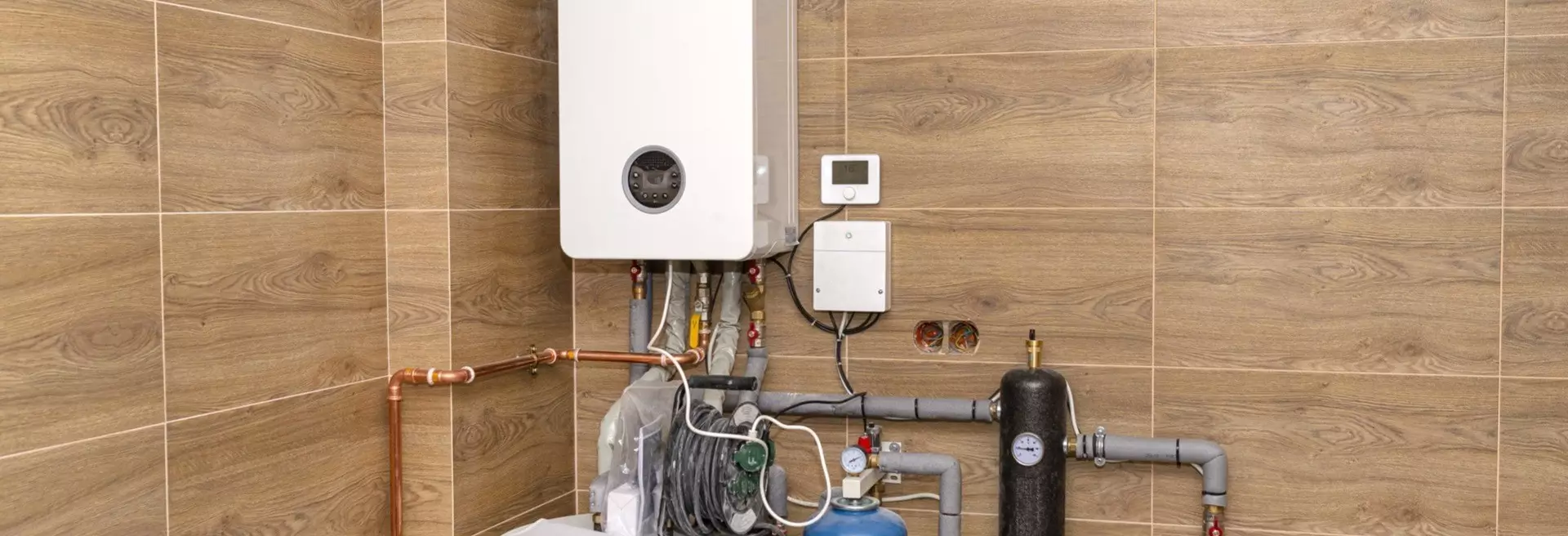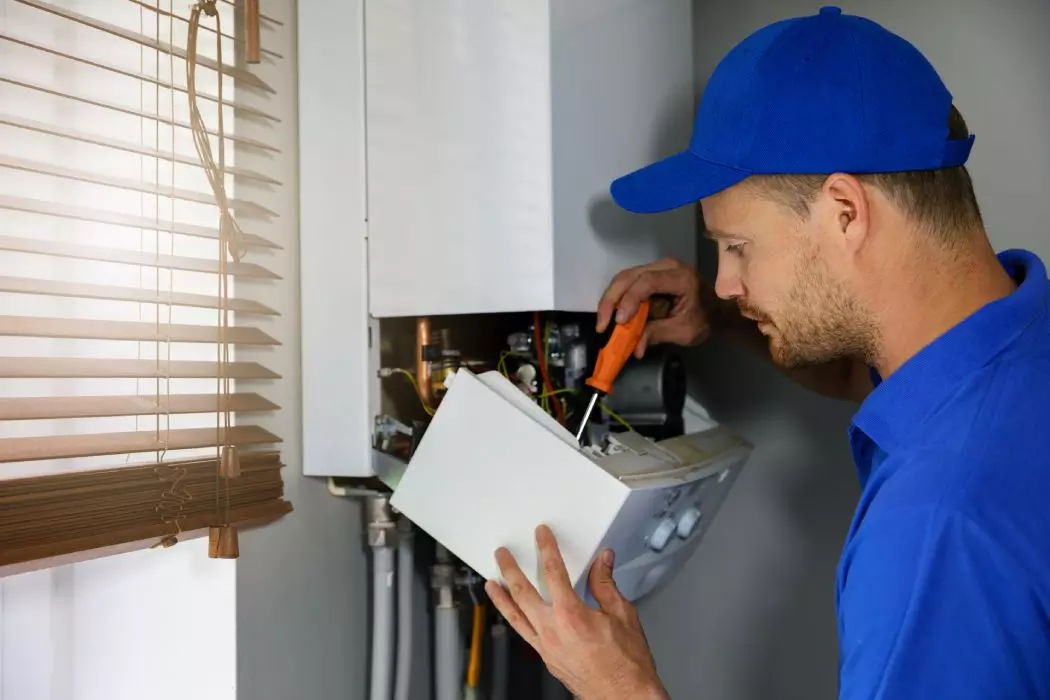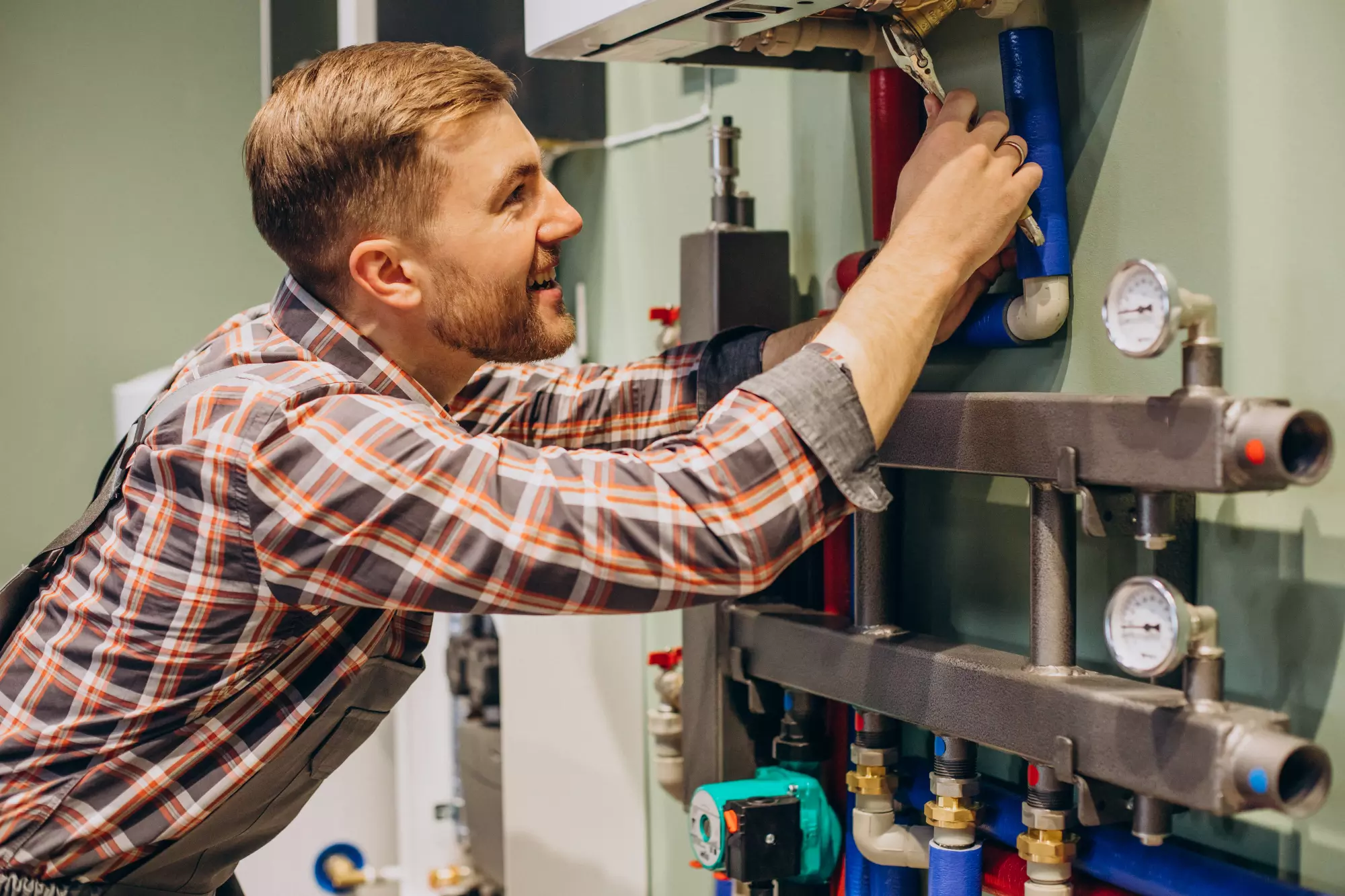Are you considering: what are common boiler problems? We look at faults that you might see from your boiler and heating system. Find out more about how you can avoid these common boiler problems.
We have all experienced problems with a boiler or heating system at some point. Whether a faulty internal component or unusual boiler noise, there is always cause for concern when the boiler stops responding as it should.
If you are looking for the most common boiler issues homeowners face, keep reading this article.
Avoiding Boiler Problems
Many people don't fully appreciate their central heating system until something goes awry. Many modern homes rely on gas appliances or a common boiler to stay warm, so you begin to panic when you notice cold patches or a brand new boiler that doesn't provide heat as promised.
Thankfully, many of your boiler problems can be prevented by regular maintenance and a gas-safe registered engineer visiting your property on a regular basis.
Of course, keeping on top of your boiler and pipework isn't anyone's main priority. We don't realise the things our central heating systems do for us until they are on the fritz, with a deposit build-up of sludge and rust preventing our radiators from warming.
To avoid boiler problems, you should familiarise yourself with the most common ones.
Common boiler problems
All boilers (even modern systems) will encounter problems at some point in their lives. If your boiler stops responding or the heating is no longer cost-effective, it's time to contact a qualified engineer on the gas safe register.
Here are the most common boiler issues you should look out for, as spotting them early can lead to possible fixes and help you make the most financial sense with your boiler.
Water Leaking
A leaking boiler is typically a sign of a failed component, with the boiler's pressure valve or faulty pump seal a likely culprit. If a leak stems from your pressure relief valve, the boiler pressure may be too high to function, or the seal may have worn out.
Both are potential faults when you notice a boiler leak and can be a simple fix, but you should never attempt boiler repairs yourself if you are not qualified. Many boiler manufacturers and gas suppliers will not allow an untrained engineer to conduct work on their boilers, so always check your warranty.
If the leak appears to originate from your system's pipes, this can be a sign of corrosion, a more serious issue in some instances. The damage caused can vary depending on how often you care for your heating system, but repairing this pipe corrosion can save money in the long run.

Low Boiler Pressure
Many boiler problems are caused by low water pressure issues, with homeowners experiencing low boiler pressure. You can check the boiler pressure from the built-in pressure gauge, which an engineer should set at the 1.5 bar.
Any readings below one will mean your boiler will not function correctly, may have to work harder and cost you more money in running costs.
The gauge will indicate red sections for high pressure, which you should also avoid. Low pressure can be caused by innocent actions, like recently bled radiators, but it can also be caused by a system leak or a failed internal component or seal.
If there are visible signs of a leak, do not remove any boiler casings and contact a Gas Safe Engineer. Where you can find no leaks, repressuring the boiler to the correct value on the pressure gauge can rectify the issue in most cases.
Once again, you should only do this if you feel comfortable and know what you're doing. Heating engineers can do this if you cannot. Ideally, it's recommended you check the pressure on your boiler every few weeks, but you should only repressurise when you notice a problem.
If this becomes more frequent, you may be dealing with a leak. While an engineer can fix this, it's more challenging the longer you leave it.
No Heating Or Hot Water
When your boiler ceases to provide your home with warmth, heating and hot water, it's naturally very irritating. However, this is one of the most common boiler problems, although it may be ironic. Sometimes this is caused by broken system diaphragms, faulty motorised valves and airlocks, or even a broken thermostat and low pressure.
If low boiler pressure is causing this problem, you can repressurise the unit if you know how to. Boilers that have not been installed correctly can also result in this problem, so always get a boiler installed by a professional engineer.
The device's manufacturer information may contain guidance on what you should do if the thermostat appears broken. In older boilers, the diverter valve is more responsible for any hot water faults.
This valve filters hot water to the taps throughout your house.

Frozen Condensate Pipes
A frozen condensate pipe is another common issue, with faulty boilers and heating systems experiencing this throughout the winter months. The condensate pipe transports the boiler's condensate to the outside drain, which can become blocked during colder months.
Suppose the external drain is installed in an unheated space like your garage or outside your house. In that case, you can experience the entire system breaking down throughout periods of cold weather as the water drops beneath the freezing point.
Older boilers may suffer greater when the temperature outside drops, but defrosting a condensate pipe can be a more straightforward fix. Using a hot water bottle or warm cloth can help the pipe defrost.
Do not let this worsen as this pipe is responsible for transporting acidic water produced from waste gas and can lead to more issues when untreated.
Radiator Faults
Cold spots and patches along your radiators, perhaps not matching the current room temperature or desired value, are not a sign of a broken boiler in many cases. When your radiators fail to get warm, this signifies a sludge build-up inside the system, especially along only the bottom.
Too much air trapped in the system is another culprit for no warm water being transported around the radiator. You can often fix cold radiators by bleeding them - which can be done yourself at home. Sometimes the issue is deeper in the pipes and requires a power flush, a specialised treatment from a professional using their tailored equipment.
This service shoots high-intensity water throughout the pipe, clearing any blockages. Leaving the sludge in place can prevent the hot water supply from being distributed evenly.
Familiarise yourself with how radiator valves work, as you should check they're receiving enough hot water to work effectively.

Boiler Not Responding To Thermostat
Many boiler problems involve a boiler not responding to thermostat controls, especially with models that ignite electronically.
Suppose your boiler is not responding to the thermostatic controls. In that case, you can try replacing the batteries as the first try (some people forget this!), and a replacement device can be ordered if the thermostat is broken or faulty.
Switching the thermostat on and off again is sometimes enough, or moving closer to the boiler as you could be out of range. Finally, there may be interference blocking the signal between the boiler and thermostat, so you will have to deal with that to get it back up and running again.
Your thermostat settings may have changed because of an upgrade or some external factor, so ensure they are what you expect and increase the temperature settings until you notice a difference or are content.
Unusual Noises Coming From Your Boiler
Your boiler, and other gas appliances, are expected to make some noise while in use. This is especially true when in operation. While boiler noises such as gurgling, whistling or banging are not immediately a sign of concern, if your brand new boiler makes unusual sounds, this signifies a potential fault.
Whistling noises or another noise coming from your boiler can signal air build-up inside the system or a collection of limescale known as "kettling." This is especially true in parts of the UK with hard water, such as Bristol, London and Southampton, which can create steam.
There are several potential causes of boiler noises, with insufficient water flow and overheating being the most common. In the case of gurgling, start by bleeding your radiators and checking the water pressure.
Banging noises can result from debris building up on the boiler's heat exchanger, which will also be removed during a power flush.

Pilot Light Keeps Switching Off
Some older boilers have a permanent pilot light that must remain lit to heat the burner. In cases where this is regularly going out, a faulty thermocouple may be causing the gas supply to be cut off.
In more straightforward cases, a draught blowing can cause the pilot light to go out. If you feel comfortable, try igniting the pilot light yourself. Always double-check the gas stopcock is on and there are no problems with your gas supply.
Use other gas appliances to check your safety with this. Many modern boilers do not have this feature of pilot lights and ignite electronically, so you should only be concerned about this problem with older boilers. In any case, if the pilot light persists going out, contact an engineer to view the boiler.
Boiler Won't Turn On (No Power)
If you are not getting any power or signs of life from your boiler, there are several issues potentially causing this. Other appliances and power supplies in your house receiving power will suggest the problem lies solely with your boiler.
If everything is without power, check your fuse box for any failed or tripped switches. From there, move to ensuring you are not dealing with a faulty thermostat, as thermostat issues can be to blame for some unresponsive boilers.
Any boilers that manage to turn on but have trouble staying on could be a sign of low pressure or a blockage inhibiting the system. In such cases, check the pressure gauge and contact a professional if you are concerned. Where sludge is present, you could also experience water but no heating or inconsistent power.
Boiler Breakdown
If you ignore any one of the above problems (or all of them!), you will likely experience a full boiler breakdown. Combi boilers, hot water boilers, condensing boilers, and more can all experience breakdowns. Due to the many electrical components inside a boiler, you are advised to get an annual service, ensuring all elements work together.
A boiler failing to produce heat or hot water or a noisy boiler requires a Gas Safe engineer to repair and replace parts, something you should only do when you feel comfortable and know what you're doing. A chemical flush will resolve most build-up issues, but this cannot be done by yourself.
Ultimately, there are many problems that can cause a boiler problem at your home. All you can do is check the system regularly and report any problems that arise when you find them.
Consult your boiler manual for further information, and remember to care for your boiler routinely throughout the year. For your boiler to work effectively, it should be inspected and washed out occasionally.
Many modern boilers have error codes displayed on screens, meaning you can diagnose the issue yourself and work closely with an engineer to fix the problem. This is vital as it can save you money in the long run.
Do you require radiator and heating servicing? We offer services to both domestic and commercial customers Uppingham, Oakham, Stamford and Rutland. Our charges are highly competitive and realistic. If you are experiencing problems with your central heating - Please contact us.

